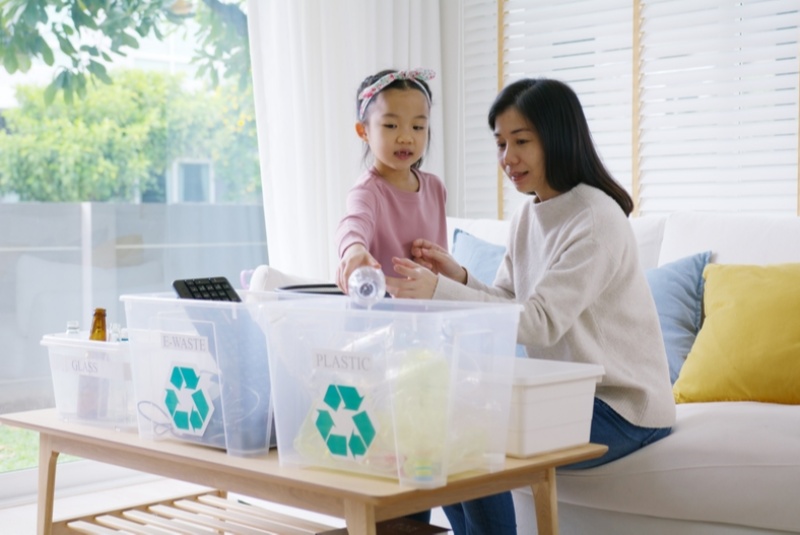In an era where environmental consciousness is not just a trend but a necessity, instilling eco-friendly habits in our children has become a crucial responsibility. This is not only for their benefit but also for the wellbeing of future generations. Here are some practical tips for raising environmentally conscious kids.
- Start with Education: Ignite curiosity about the natural world from an early age. Introduce your children to the basics of ecology, climate change, and resource conservation in an engaging, age-appropriate way. Use children’s books, educational videos, and games that focus on environmental themes. Additionally, teach them about the impact of their actions on the environment, emphasizing the importance of sustainable living.
- Lead by Example: Children often model their behavior after the adults around them. Show your commitment to the environment through daily actions, such as recycling, composting, and reducing energy consumption. Discuss these practices with your children, explaining why they are important. This will encourage them to adopt these habits as their own.
- Promote Outdoor Activities: Encourage your children to spend time outdoors. Whether it's gardening, hiking, or beach cleanups, engaging with nature fosters an appreciation for the environment. These experiences will help them understand the importance of protecting it.
- Teach Them to Reduce, Reuse, and Recycle: The three R's are the cornerstone of sustainable living. Encourage your kids to apply these principles in their daily lives. Show them how to minimize waste, repurpose items, and sort materials for recycling. Make it a fun and rewarding experience. For instance, you could turn recycling into a game or create DIY projects from reusable items.

- Choose Eco-Friendly Products: Start choosing products that are environmentally friendly, from toys to clothing. Look for items that are made of sustainable materials, have minimal packaging, and are designed to last. Explain these choices to your kids to help them understand the concept of consumer responsibility.
- Involve Them in Eco-Friendly Household Chores: Let your kids participate in tasks like sorting recycling, planting a vegetable garden, or choosing energy-efficient appliances. These activities can turn into fun learning experiences and give them a sense of responsibility towards the environment.
- Encourage Critical Thinking: As your children grow older, discuss environmental issues in more depth. Encourage them to question the status quo and think critically about ways to improve it. This could involve brainstorming ideas for reducing your family's carbon footprint or debating the merits of different energy sources.
- Connect Them with Environmental Organizations: Many organizations offer programs for children and teens interested in environmental activism. Encourage your child to get involved in these initiatives. They can participate in local cleanups, join a youth environmental club, or even start their own eco-project.
- Introduce Them to Green Careers: Encourage your children to consider careers that can make a positive environmental impact. This might be a job in renewable energy, conservation, sustainable agriculture, or environmental law. By showing them that they can turn their passion for the environment into a profession, you're nurturing their desire to protect the planet.
- Celebrate Environmental Holidays: Participate in Earth Day, World Environment Day, and other environmental holidays with your children. Use these occasions to learn about new environmental topics, participate in local events, or start a new eco-friendly tradition.
Raising environmentally conscious children is an ongoing process that requires persistence, patience, and lots of conversation. By incorporating these tips into your parenting, you'll be helping to shape a generation that respects and cherishes the planet. Remember, the goal is not to instill fear about the state of the environment but to inspire a sense of responsibility




